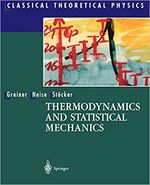Main Page: Difference between revisions
No edit summary |
No edit summary |
||
| (32 intermediate revisions by the same user not shown) | |||
| Line 6: | Line 6: | ||
|style="width:280px;text-align:center;white-space:nowrap;color:#000" | | |style="width:280px;text-align:center;white-space:nowrap;color:#000" | | ||
<div style="font-size:160%;border:none;margin: 0;padding:.1em;color:#000"> [[Image:UDcoaCweb.jpg|left|100px]] PHYS 813: Quantum Statistical Mechanics</div> | <div style="font-size:160%;border:none;margin: 0;padding:.1em;color:#000"> [[Image:UDcoaCweb.jpg|left|100px]] PHYS 813: Quantum Statistical Mechanics</div> | ||
|} | |||
{|style="width:100%;background:none;margin:-.8em 0 -.7em 0" | {|style="width:100%;background:none;margin:-.8em 0 -.7em 0" | ||
|style="font-size:95%;text-align:left;white-space:nowrap;color:#000"| [http://web.physics.udel.edu/about/directory/faculty/branislav-k-nikolic Instructor] | |style="font-size:95%;text-align:left;white-space:nowrap;color:#000"| [http://web.physics.udel.edu/about/directory/faculty/branislav-k-nikolic Instructor] '''·''' [https://wiki.physics.udel.edu/qttg/Teaching_Web Teaching Web] '''·''' [http://web.physics.udel.edu UD Physics & Astronomy] '''·''' [http://www.udel.edu University of Delaware] | ||
|style="font-size:95%;padding:10px 0;margin:0px;text-align:right;white-space:nowrap;color:#000"| [[Help:Contents|Help]] '''·''' [http://en.wikibooks.org/wiki/LaTeX WikiLaTeX] '''·''' [[Special:Categories|Categories]] '''·''' [[Special:Newimages|Media]] '''·''' [[Special:Allpages|A–Z index]] | |style="font-size:95%;padding:10px 0;margin:0px;text-align:right;white-space:nowrap;color:#000"| [[Help:Contents|Help]] '''·''' [http://en.wikibooks.org/wiki/LaTeX WikiLaTeX] '''·''' [[Special:Categories|Categories]] '''·''' [[Special:Newimages|Media]] '''·''' [[Special:Allpages|A–Z index]] | ||
|} | |} | ||
| Line 25: | Line 18: | ||
! <h2 style="margin:0;background-color:#cef2e0;font-size:120%;font-weight:bold;border:1px solid #a3bfb1;text-align:left;color:#000;padding:0.2em 0.4em;"> Course Topics</h2> | ! <h2 style="margin:0;background-color:#cef2e0;font-size:120%;font-weight:bold;border:1px solid #a3bfb1;text-align:left;color:#000;padding:0.2em 0.4em;"> Course Topics</h2> | ||
|- | |- | ||
|style="color:#000"|[[Image: | |style="color:#000"|[[Image:greiner.jpg|left|150px]] This is the second core course in the sequence (PHYS 616 + PHYS 813) aimed to introduce physics graduate students to basic concepts and tools of statistical physics. PHYS 616, or equivalent taken at some other institution, is prerequisite to enroll in this course. | ||
Quantum statistical mechanics governs most of condensed matter physics (metals, semiconductors, glasses, ...) and parts of molecular physics and astrophysics (white dwarfs, neutron stars). It spawned the origin of quantum mechanics (Planck's theory of the black-body radiation spectrum) and provides framework for our understanding of other exotic quantum phenomena (Bose-Einstein condensation, superfluids, and superconductors). | |||
The course will focus on practical introduction to QSM via examples and hands-on tutorials using computer algebra system such as Mathematica. The examples will be drawn from the application of QSM to condensed matter physics, phase transitions in magnetic systems, astrophysics, and plasma physics, as are the areas of relevance to research in DPA. | |||
'''Main Course Topics:''' | |||
|- | |- | ||
|style="color:#000"|{{Course Topics}} | |style="color:#000"|{{Course Topics}} | ||
|- | |- | ||
|}<!-- Start of right-column --> | |}<!-- Start of right-column --> | ||
|class="MainPageBG" style="width:45%;border:1px solid ##FFE680;background-color:#FFF2BF;vertical-align:top;color:#000"| | |class="MainPageBG" style="width:45%;border:1px solid ##FFE680;background-color:#FFF2BF;vertical-align:top;color:#000"| | ||
| Line 50: | Line 43: | ||
|- | |- | ||
|style="color:#000"|{{Quick Links}} | |style="color:#000"|{{Quick Links}} | ||
|- | |||
! <h2 style="margin:0;background:#FFE680;font-size:120%;font-weight:bold;border:1px solid #a3b0bf;text-align:left;color:#000;padding:0.2em 0.4em;">Course Motto</h2> | |||
|- | |||
|style="color:#000"|{{Course Motto}} | |||
|- | |- | ||
|} | |} | ||
Latest revision as of 10:12, 27 October 2022
Wiki Getting StartedConsult User's Guide for information on using the wiki software. |

